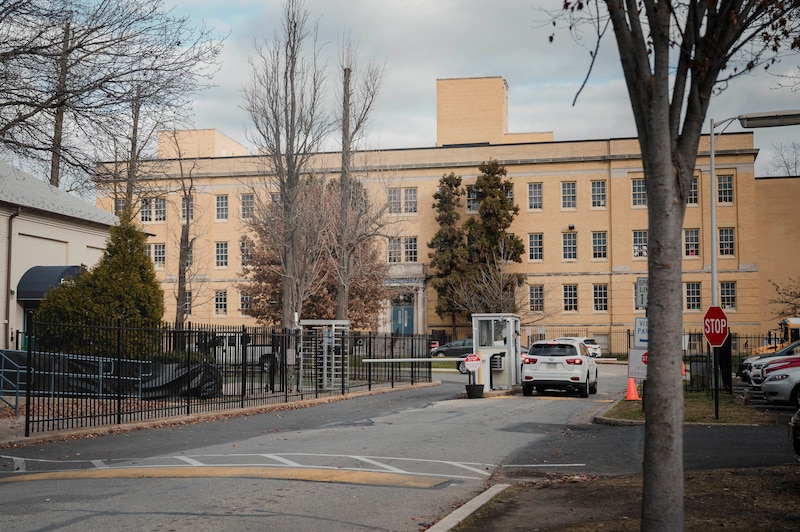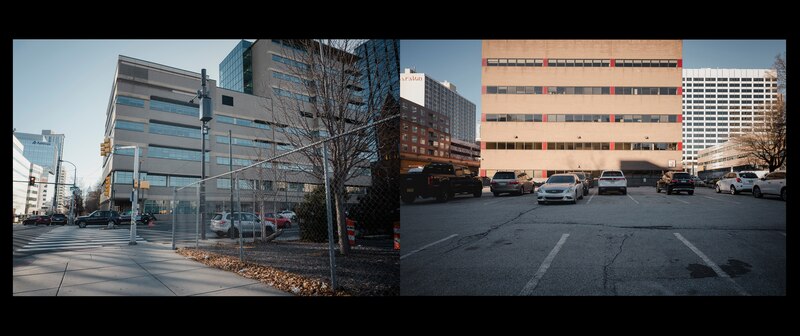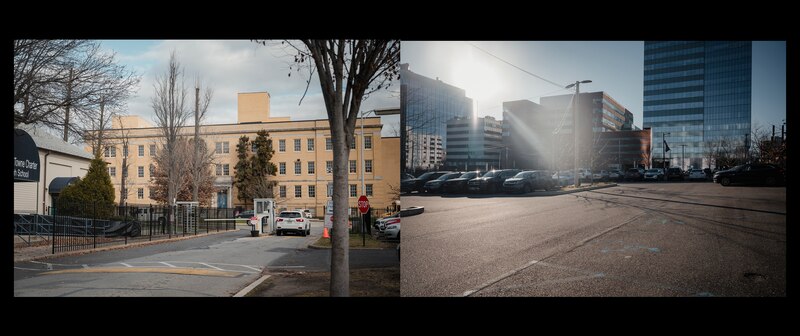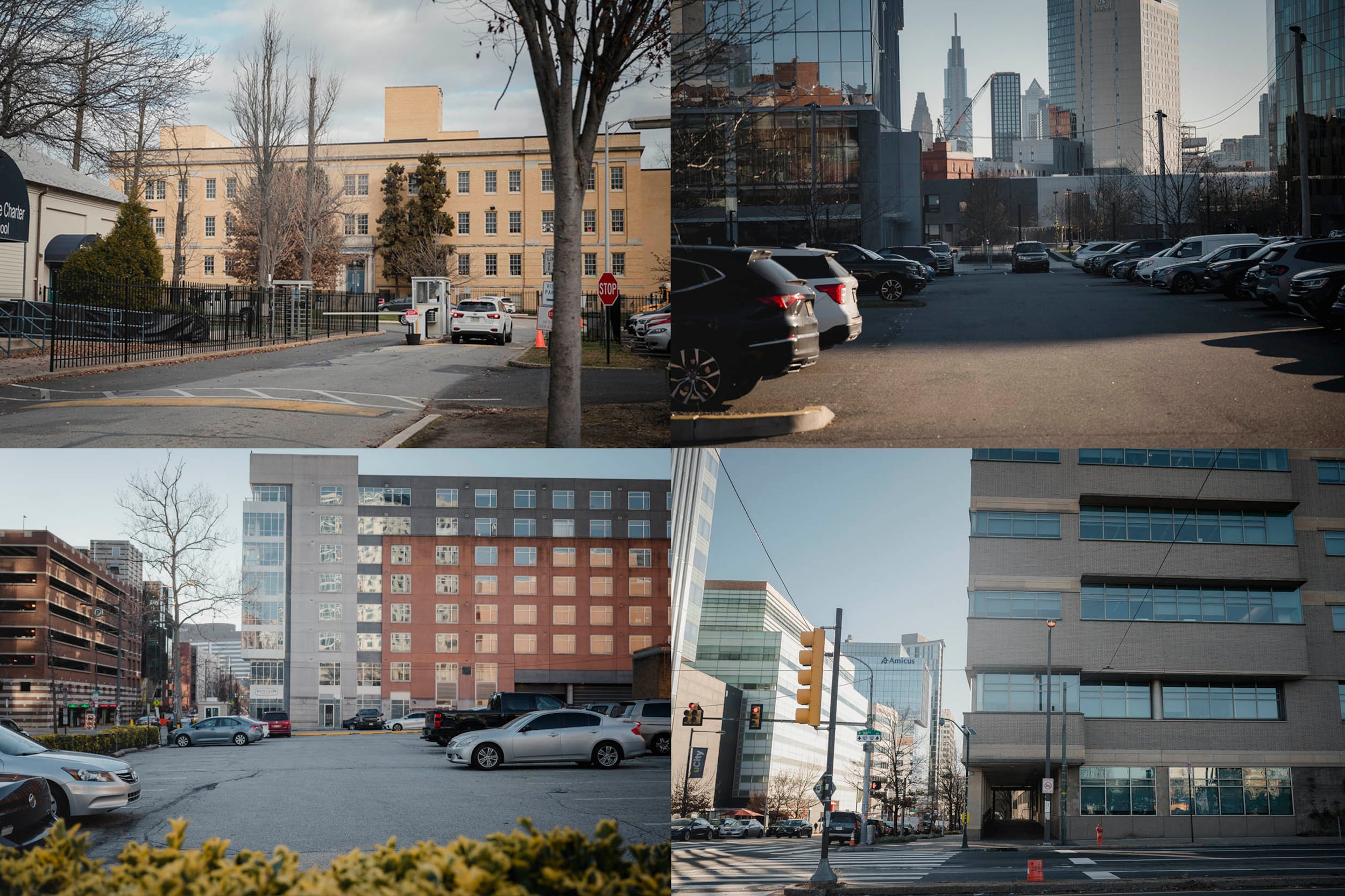Sign up for Chalkbeat Philadelphia’s free newsletter to keep up with the city’s public school system.
Every so often, Philadelphia’s school board members have to decide whether to grant huge tax breaks to property developers through a program that, on the whole, siphons money away from the city and the district they govern.
These tax breaks are a lynchpin of Keystone Opportunity Zones, a 25-year-old state program that officials say spurs development on abandoned or underutilized land by waiving nearly all state and local taxes, including business and property taxes, in the zones for up to 10 years. Pennsylvania says the program is a strong economic development strategy.
But by the district’s own estimate, the zones have cost Philadelphia public schools $59.9 million since 2017. The district lost out on $7.7 million in 2022, an amount that could have funded 61 librarians for one year, based on the district’s average salary and benefits equaling $126,000 for the 2021-22 school year, for example. Since 2017, developers receiving new zones or extensions for previously approved zones are required to provide alternative revenue to the district to help offset that impact. Yet nearly three-quarters of the zones still don’t even generate that revenue stream, according to city records.
And when the board had the chance to halt five of the zones last year, it approved them instead.
The program highlights the school system’s place in the city’s political and financial ecosystem. And its trade-offs have become the subject of intense debate. The Philadelphia school district relies heavily on city property tax revenue for its $3.9 billion budget. It has no independent taxing power and is getting just over $1 billion in city property taxes this fiscal year. The district’s projected $407 million budget deficit next year only underscores disputes about the zones.
But criticism of the zones goes beyond their tax impact. Keystone Opportunity Zone (KOZ) developers are now “strongly encouraged” (according to a statement from the city’s Department of Commerce) to offer work and related opportunities for students enrolled in the district’s career and technical education programs. Yet only three developers have actually provided these opportunities, and information about them is not easily accessible. More developers could be offering life-changing opportunities to hundreds if not thousands of students, but aren’t.
Overall, records provided about the program appear to leave out critical details, and it’s not clear which businesses are or should be making required payments designed to serve as an alternative to regular tax burdens. Critics have alleged the overall program lacks transparency and accountability, and that it’s expanded unnecessarily to already rapidly developing neighborhoods like Fishtown and University City.
“Can they afford the tax break? I don’t think they can. I think there’s no way this school district should be writing off anybody’s taxes,” said Donna Cooper, executive director of the advocacy group Children First, referring to the board. “They don’t have the money.” She added that the district should be more focused on whether the setup is benefitting students.
The tension surrounding Keystone Opportunity Zones was on display during an August school board meeting, when board members voted on whether to grant 10-year extensions of the tax abatements to five developers.
Some board members said they didn’t understand why the tax breaks were still needed — and why, in some cases, properties remained undeveloped even after developers had held onto the land for more than a decade.
“I’m trying to reconcile that in my brain,” Board Vice President Mallory Fix-Lopez said.
The five developers in question were Enterprise Center, Stateside Vodka, Longfellow Real Estate Partners, Wexford Development, and Arsenal. Arsenal has had a Keystone Opportunity Zone in Tacony since 2004, yet is still trying to develop 12 buildings.

Present at the meeting and answering the board’s many questions were not the developers, but Philadelphia Department of Commerce leaders. When Fix-Lopez asked for data about the career-related learning opportunities developers have said they’ll provide for students, the officials responded with details from one developer, Hilco, which was not requesting an extension. The officials did not provide comprehensive information about the others.
Board member Cecilia Thompson said she wanted more time to review the developers’ letters of intent, “because it’s almost as if we are voting blind.”
Despite these and other questions and concerns, the board voted to approve four of the five extensions at the August meeting. Only Arsenal’s extension didn’t get the thumbs-up. Then, in September, the board pivoted and voted to extend the tax break for Arsenal after all.
In an interview with Chalkbeat, board member Lisa Salley said she changed her vote in support of Arsenal after visiting the construction site.
“What we were able to see is the level of complication and the layers of government at the federal level and at the city level, the level of relationships involved with making any decision to develop it,” Salley said.
Salley would not comment on her other votes in favor of the KOZ extensions. Board Vice President Fix-Lopez declined to comment on her decision. No other board members responded to Chalkbeat’s repeated requests for comment about their votes.
The City Council unanimously approved four of the five KOZ extensions last June, a few months before the school board did so.
Councilmember Jamie Gauthier said she supported Enterprise’s tax abatements because of the developer’s mission (Enterprise is a nonprofit).
“We just have to be very clear before we give up revenue that the city needs, that there’s a concurrent benefit that’s going to come, particularly for Black and brown working class people who are at risk of displacement in our communities,” Gauthier said.
But Jeff Hornstein, executive director of the Economy League, who worked on a 2014 report on Keystone Opportunity Zones’ tax impact for the city controller’s office, said that between the city and the school district, “The school district is the biggest loser, at least in the short run.”
Workaround for school district revenue falls short
A state law enacted in 2008 allows the city to require developers using Keystone Opportunity Zones to make payments in lieu of taxes, sometimes known as PILOTs.
The school district receives 55% of these payments. The total payment amount is 10% more than what the real estate taxes would have originally been for each property, and are based on the city’s most recent property assessment.
But even with the PILOT payments, the zones ultimately lead to less funding for the district than regular taxes.
Property owners now sign a contract with the city to pay PILOTs when they are granted the tax abatements. The district received $1.2 million in such payments from developers and property owners in 2023, markedly less (for example) than the $7.7 million the district didn’t collect in revenue due to KOZ tax breaks from the previous year.
And crucially, not all developers who benefit from Keystone Opportunity Zones actually generate those payments. That’s partly because only developers approved for them since 2017, or developers who have been granted extensions by the district since then, are required by the commerce department to make those payments.
Out of 287 properties with KOZ tax abatements in 2023, businesses made payments in lieu of taxes on just 81 of them, according to district records provided to Chalkbeat.
For instance, Urban Outfitters doesn’t make such payments for its three properties on Kittyhawk Avenue, or its property on Flagship Drive. Brandywine Realty Trust doesn’t make these payments on FMC Tower, a prominent development on Walnut Street.
And not all property owners with established PILOT agreements — according to city records — made those payments in 2023. East Capital Partners (which is developing Stateside Vodka’s new warehouse), and Commercial Development Co., the developer of a contested UPS warehouse in the Northeast, did not make their payments to the district in 2023, according to the district.
Neither company responded to Chalkbeat’s multiple requests for comment.
In an interview with Chalkbeat, City Councilmember Kendra Brooks said there needs to be better “collective planning” related to the Keystone Opportunity Zones.
“We can’t continue to create systems that aren’t monitored and we don’t have accountability,” Brooks said. “And the outcome is that our school district is suffering.”

Information on developers’ help for students is sparse
Perhaps the most direct connection between these opportunity zones and Philadelphia’s students is the chance for students to learn career and technical skills that are provided by some developers — at least in theory.
In December 2018, the City Council passed a bill requiring Keystone Opportunity Zone applicants to include plans to offer apprenticeships, internships, and other work opportunities for students enrolled in the district’s career and technical education programs. These plans are known as Opportunity Plans or — as the district calls them — Career Connected Learning Plans.
But the commerce department said that bill isn’t enforceable because it’s a state-run program, and it’s not a state requirement for developers to offer students such opportunities.
The city is “pretty limited” in how it can change Keystone Opportunity Zone rules for developers “unless there’s a provision in the state law that allows for it,” said Marc Stier, executive director of the Pennsylvania Policy Center. (The 2008 amendment to state law allowing the city to require PILOT payments is one such change.)
Since 2020, 50 developers, according to the commerce department, have been granted zones or extensions on their zones. Yet just three of those developers have devised and implemented these Career Connected Learning Plans, according to the district: Hilco ReDevelopment Partners, Brandywine Realty Trusts, and Cescaphe of Battery Park. And even those three developers have not fulfilled these plans to the extent they’ve said they will.
The commerce department says the plans have “engaged thousands of students” since 2020, yet neither the school district nor the commerce department shared detailed information about the plans. They are not available online or easily accessible to the public.
The district said Hilco and Brandywine have enacted 95% of their promises, while Cescaphe has 50% of its plans in place. When asked for further details, the district directed Chalkbeat to the commerce department. The city did not share what the percentages mean.
In 2020, Hilco, which bought the former Philadelphia Energy Solutions refinery, revealed ambitious plans for providing career pathways to students. The commerce department said Hilco “engaged over 1,300 students” in the 2022-23 school year. But when Chalkbeat asked for details about what the developer provided, the city only cited general information, listing “career fairs, job shadowing, internships, informational interviews and site tours.”
According to the commerce department, Brandywine created a six-week program for Dobbins High School BioTech students to meet with industry professionals, receive mentoring, and go on site tours. Cescaphe donated food to school district events and has been working with Ben Franklin High School’s culinary program to give site tours and develop ongoing programming.
At the August school board meeting, the commerce department presented five new career learning plans with developers’ Keystone Opportunity Zone extension requests. But in December, the district said none of those plans had been implemented yet.
Fix-Lopez, the board’s vice president, zeroed in on the Enterprise Center’s estimate that it would engage with 30 students annually, including 20 who’d get access to career fairs. “That’s one kindergarten classroom, for example,” she said. “In a city of 1.5 million with 200,000 students, how did we come up with 20?”
Cooper, of Children’s First, criticized the commerce department’s failure to truly define what it means for developers to have “engaged” with students.
“Let’s say they do internships — what does that mean? How many hours? What are they learning?”
The office wants to make “quality experiences for students, versus quantity,” said Gianna Grossman, the commerce department’s senior director of workforce development.
The city cannot revoke a Keystone Opportunity Zone designation if a developer doesn’t follow through on plans for students or PILOT payments.
“We are completely within our right to recommend to the state that they not renew,” Commerce Department Director Anne Nadol said in December (Nadol has since left that position).
But the city has not made such a recommendation in the last 10 years, according to the Pennsylvania Department of Community and Economic Development, the agency that runs Keystone Opportunity Zones. Not paying PILOTs or following through on pledges to provide career opportunities to students is also not grounds for denying applications for the zones, the department said.

Advocates ask for more on transparency, student promises
Nelida Sepulveda, an advocate for effective workforce and public education reform policies and staffer with Children First, said wants to see public reporting on the effectiveness of the Career Connected Learning Plans.
“If they have a data collection process and reporting structure, they should make it known so that the public can access it and use it as a tool to either promote these types of initiatives or hold stakeholders accountable for poor performance or lack of follow through — since after all, these are public resources that are being utilized,” Sepulveda said.
Then there are concerns about a lack of transparency for decisions like the board’s August and September votes.
“When you post an item that nobody can understand and then you flip your vote and give either no explanation or an incoherent explanation, you’re not telling people what your priorities are and why you’re doing what you’re doing,” said Lisa Haver, cofounder of the education advocacy group Alliance for Philadelphia Public Schools.
Children First’s Cooper described the developers’ plans as overall “extremely modest” in relation to the benefit of the tax abatement. More questions should be asked about whether they are providing a sufficient return for students, she said.
“People really underdeveloped those plans. They didn’t demonstrate any significant commitment ... that’s a tragedy,” Cooper said.
Correction, Feb. 1, 2024: Due to inaccurate records from the city commerce department, this article has been updated to reflect that since 2020, 50 developers have been granted zones or extensions on their zones. A previous version of the article said at least 17 developers had been granted zones or extensions based on city records.








